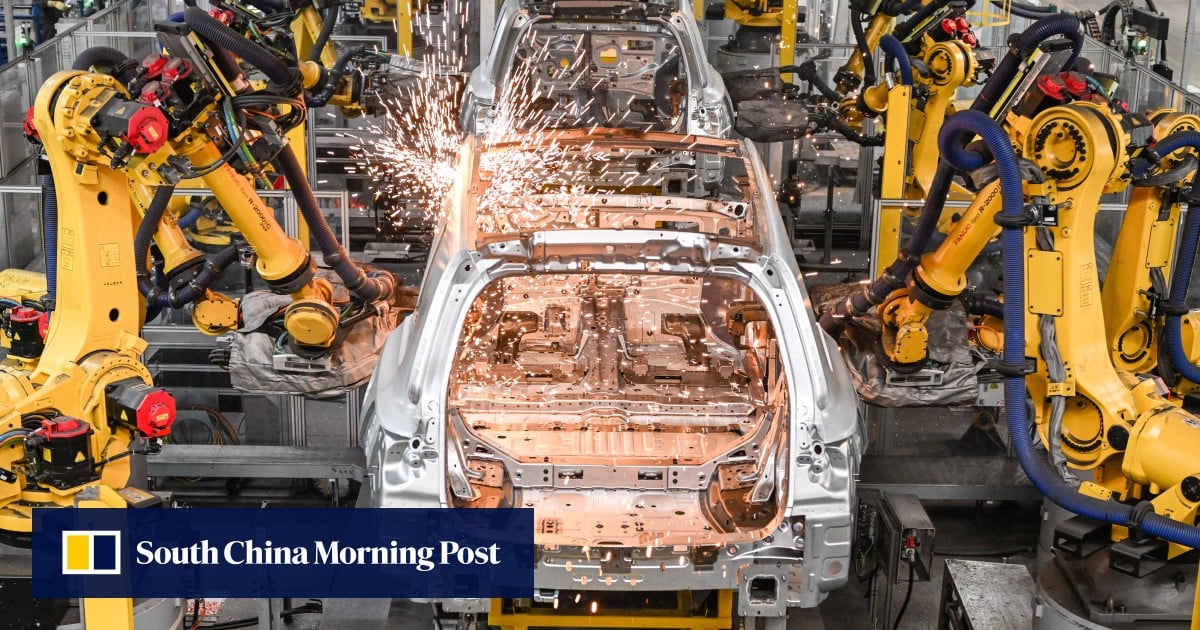Car sales in mainland China are likely to slide in 2026, breaking a six-year streak, if Beijing stops granting cash subsidies and tax incentives to buyers, according to a JPMorgan forecast that looms over the earnings outlook for the country’s 100-odd vehicle assemblers.
“We expect retail [car] sales to see flat growth next year in a bullish scenario,” Nick Lai, head of auto research in Asia-Pacific at JPMorgan, said in an interview. “The market has more than a 50 per cent chance of seeing year-on-year slippage as meaningful demand may have been brought forward.”
Mainland car sales could slump by 3 to 5 per cent next year in a more cautious scenario, he added.
The forecast encompasses both electric vehicles (EVs) and petrol cars. The EV segment – a bright spot in China’s economy amid surging adoption by local motorists – was expected to grow 15 per cent next year, down from a projected 27 per cent this year, Lai said.
China’s automotive sector last contracted in 2020, when carmakers handed a total of 19.5 million units to customers, down 6.2 per cent from 2019, data from the China Passenger Car Association showed.
Expiring subsidies and tax incentives are to blame for the pessimistic outlook.
